Graham Reid | | 3 min read
Subsequent Finale

Music news travels fast. Sometimes too fast.
A group around the table, talking over bottles of wine and each other, was reminiscing about how scenes used to develop in glorious isolation.
Tennessee in the mid Fifties, the South Side of Chicago and Liverpool in the early Sixties, a strange brew of dope smoke and religion on an off-beat in Jamaica a decade later, downtown New York not long after, Detroit clubs, Seattle, Portland . . .
In all of these places and many more artists would define and refine their sound and when fame, or some approximation of it, came calling they were ready and seemed to arrive fully formed.
These days if two bands get a following in some place like Leeds or Lisbon, Perth (Australia or Scotland) or some one-Porsche town in America's Midwest their names are tweeted, the fans take to Facebook, Spotify and bandcamp links are trawled . . .
It's called growing up in public and maybe it's good to get early recognition, but it kills any notion that a scene could actually develop and grow under its own momentum.
It's like taking to the internet to talk about your favourite private beach that no one knows about. It becomes a little self-defeating.
But let's not kid ourselves too much. Once Elvis and the Beatles broke bigtime there were copyists and acolytes popping up everywhere from Tokyo to Whanganui, Manila to Christchurch.
Same with the psychedelic music out of San Francisco. Even as early as '66 when bands like the Blues Magoos and Electric Prunes pulled together garageband rock and psychedelic pop they inspired imitators all over.
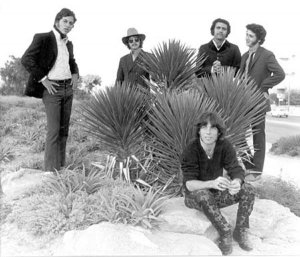 Nowhere more unexpected
than in Israel where a teenage band from Tel Aviv – which had
formed in '65 – morphed into the country's first slightlydelic rock
band, and in '69 became associated with first rock album sung in
Hebrew.
Nowhere more unexpected
than in Israel where a teenage band from Tel Aviv – which had
formed in '65 – morphed into the country's first slightlydelic rock
band, and in '69 became associated with first rock album sung in
Hebrew.
Before that album – Poozy, when they backed singer Arik Einstein – they recorded their own self-titled debut (aka Cherchilim) in '68 which remains a fascinating blend of psychedelic rock.
And it's in English because . . .
After establishing a sound reputation in clubs in the Beat scene, the original members Miki Gavrielov, guitarist Haim Romano and drummer Ami Traibetch hooked up with the Canadian singer Stan Solomon and British singer-guitarist Robb Huxley (of the Joe Meek band the Tornados).
The New Tornados as they were billed – whose star was in the descent – toured in Israel but broke up in Tel Aviv where Huxley met Solomon and was introduced to the band.
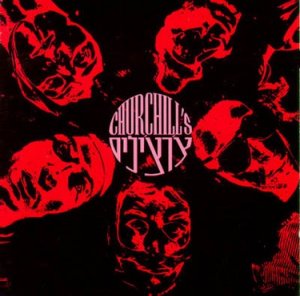 They recorded their debut
album with their ears on Moby Grape, the Doors (the declamatory Straight People
which is a poke at the same, and more dreamy Song From the Sea), the
Magoos/Prunes psyche-rock axis (Open Up Your Eyes), acid weirdness
with an oscillator (So Alone Today), a nudge of hard rock (Comics,
Strangulation) and Middle Eastern influences (on the sound collage of
music, coughing and pop on Debka) alongside backward tapes, strange
sound effects and their considerable instrumental skills.
They recorded their debut
album with their ears on Moby Grape, the Doors (the declamatory Straight People
which is a poke at the same, and more dreamy Song From the Sea), the
Magoos/Prunes psyche-rock axis (Open Up Your Eyes), acid weirdness
with an oscillator (So Alone Today), a nudge of hard rock (Comics,
Strangulation) and Middle Eastern influences (on the sound collage of
music, coughing and pop on Debka) alongside backward tapes, strange
sound effects and their considerable instrumental skills.
The 10 song album is very much a product of its era (Subsequent Finale is a weird but enjoyable mix of pop-rock, flat-tack Jewish music and pre-Dark Side Pink Floyd-like ambient sounds which segues into So Alone Today), but a rather stranger one than most because of how unexpected it can be. And it came from a country just a year on from the Six Day War and under the gun from Palestinian attacks.
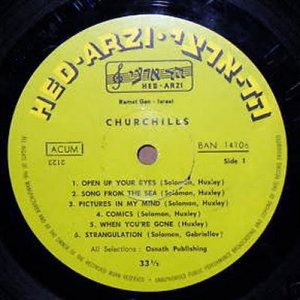 None of that knotty
politics is addressed because their heads were clearly somewhere else,
and although they didn't choose to move too far from pop length songs
(or even structures) nor did most of their influences.
None of that knotty
politics is addressed because their heads were clearly somewhere else,
and although they didn't choose to move too far from pop length songs
(or even structures) nor did most of their influences.
The expanded CD edition from 2010 – available on Spotify and iTunes – finds them faithfully covering Led Zepp's Livin' Lovin' Maid and the Beatles She's a Woman among other songs.
Confusingly after the Churchill's album (sometimes just Churchills, perhaps nothing to do with Winston but a conflation of some Hebrew words alluding to the songs of God according to one source) they recorded as Jericho Jones and Jericho (more into heavy rock). Those extra songs come from those iterations and are best ignored for present purposes.
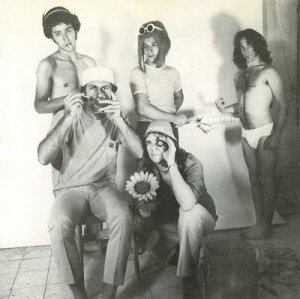 At times they played outside of Israel, performed with an orchestra, members left, they hooked up with
Einstein, they went to Denmark . . .
At times they played outside of Israel, performed with an orchestra, members left, they hooked up with
Einstein, they went to Denmark . . .
Although not all necessarily in that order.
Facts are slippery.
But it is just that self-titled debut which is of interest.
British rock writer Richard Morton Jack once said that many consider it to be “the finest psychedelic rock album to come from a non-English speaking country”
Albeit one sung in English because . . .
Elsewhere is indebted to this website and the subsequent comments in the preparation of this article.


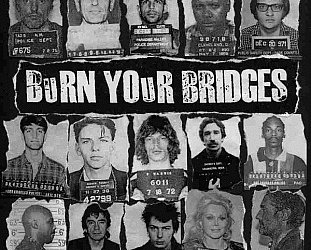
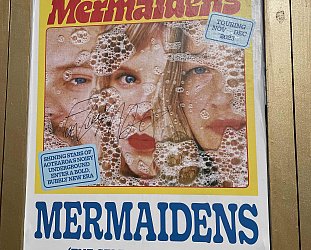
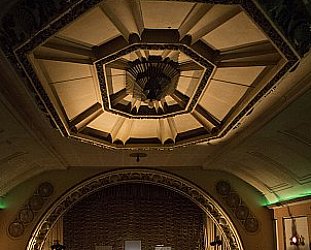


post a comment